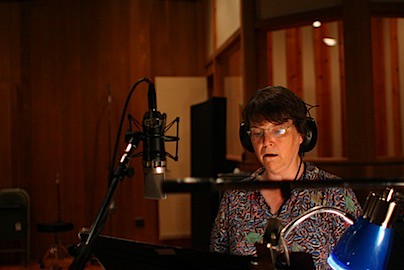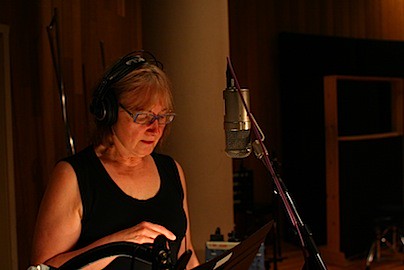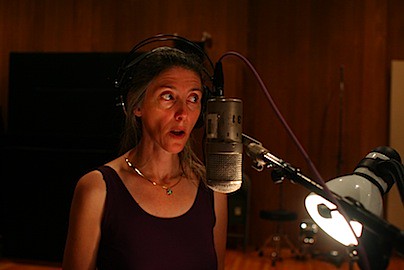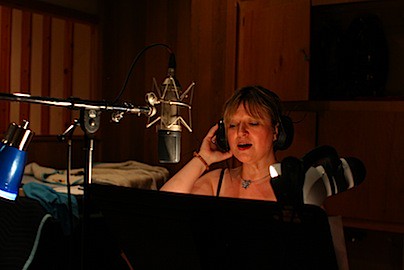GAP: Born To Fit
My Gap ad campaign has arrived!
A sample:
Check out http://www.youtube.com/user/gap for more videos. (They're all pretty much the same music, though.)
Labels: Advertising
thoughts on music, design and literature
My Gap ad campaign has arrived!
A sample:
Check out http://www.youtube.com/user/gap for more videos. (They're all pretty much the same music, though.)
Labels: Advertising
I wish I knew what was happening here!
http://dic.nicovideo.jp/v/sm2396637
I think someone did some clever cutting and created an anime dance number out of Baba Yetu. Oh how I wish I spoke Japanese.
Labels: Funny
Fascinating graphic from the New York Times!
Did you know that in 2008, vinyl overtook cassette sales for the first time since the 80s?

Labels: Record Industry
Some more questions; this time from Morgan in Connecticut, a high school student interested in getting into film scoring.
When did you discover that this is what you wanted to do? And how did you develop that during your college experience? I am someone with a strong interest here but unwilling to commit to music school. Do you have any advice as to how I might pursue this interest?
I realized when I was roughly 17 or 18 that I composing was a strong suit for me, but I didn't actually commit to it until I went through a few majors in college, and ruled them out. My first two years of college, I really didn't dwell too much on what I would eventually be--just tried a few things out, like law (hated it) and architecture (couldn't draw). The whole time I was taking those classes, I was also studying composition. It was always present. Eventually I decided to apply to grad schools for it, and when I got accepted to the Royal College of Music, I decided 'this is it... I'm going for it now.'
I don't think you really need to commit to music school yet. Many a great musician got a fine liberal arts education first, before focusing on the music. Leonard Bernstein comes to mind; if I remember right, he went to Harvard first, before going to Curtis. So go ahead and go to a liberal arts school--I highly recommend it, in fact. Do a double major--music and something else--make yourself a well-rounded individual, and it will inform your music down the line. (E.g. all the work I do with setting ancient religious and secular texts comes from being an English major in addition to being a music major.)
I saw that part of your undergraduate education was at Stanford. Was there anything in particular that attracted you to that school? I am in the midst of the college search process right now and Stanford is one of the schools I am looking at (in addition to other liberal arts schools with strong music programs). Do you have any advice as far as what might be important for someone who is not applying to a conservatory or music school but rather a school with a strong music program? Is there something in particular that I might look for? I wish there were schools like these with film scoring programs!
I wanted to go to Stanford simply because it was an exceptional school. I didn't even apply to music conservatories as an undergrad. I think that those types of schools are looking for well-rounded individuals. Obviously, all things being equal, you should go to the school with the best music program as well--but bear in mind that a lot of the growing that you'll do as a musician happens outside the classroom, and outside the major. My best experiences at Stanford were from being the music director of Talisman A Cappella and various musical theatre productions.
I have had this interest for a while, although I am not very good at it! Do you feel that some of the skills required to compose in general can be acquired, or are we born with the majority of them? While I play several instruments I am not an incredibly strong musician in any one of them. Do you feel that strength in a particular instrument contributes to strength in composition?
No one's good at it when they're first starting out, so don't worry about it. The important thing is to keep writing and writing... only by getting the bad music out of your system will you get to the good stuff. I play several instruments, and the truth is I'm TERRIBLE at them. The one skill that I would suggest that you get good at is ear training. I can listen to a piece of music and transcribe note-for-note what every instrument is playing. Every time I listen to a piece of music, I'm doing a mental transcription and analysis of it. That's a pretty useful skill, because it allows you to dissect anything you hear, and learn subconsciously from it.
Hope that helps!
Labels: Teaching
Some pics from my session with Anonymous 4, the extraordinary early-music vocal quartet. These women have the most angelic voices aver, and they're performing a setting of an excerpt of the 18th-century Irish epic poem 'Caoineadh Airt Ui Laoghaire' on Calling All Dawns.
And on the topic of Calling All Dawns, in case you haven't heard, the release date is October 1st.




Labels: Album